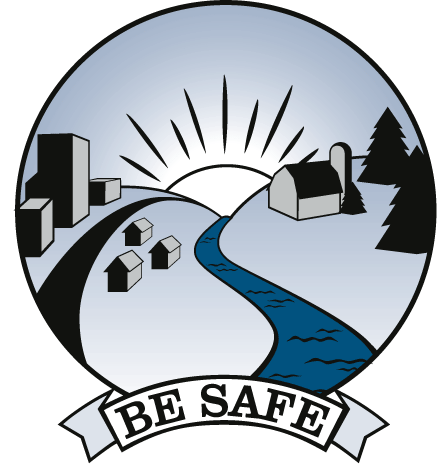![]()
![]()
![]()
Nuclear
Power & Weapons Waste In
Everyday
Household Items
& Landfills
Prevent
Radioactive Waste from Entering
the Marketplace & Trash

If
our federal government has its way, radioactive materials will soon
find their way onto store shelves and into our homes and workplaces
with no warning or labeling. Radioactive waste from nuclear
power and weapons could be “recycled” into everyday household items
like toys, cookware, cars, furniture, medical equipment, buildings,
and roadways. Radioactive soils, concrete, asphalt, metal, piping,
plastic, wood, tools, equipment and more from nuclear power reactors
or weapons production could be ‘deregulated’ and sent to places
never intended to receive them. Trash dumps or burners would bury
or burn radioactive materials with household garbage like packaging
and food scraps. Metal, plastic and other recyclers would (probably
unknowingly) mix and melt radioactive materials with clean ones
to be used to make new products. Contaminated concrete and asphalt
could be crushed and used for roadbeds and building site preparation.
As
nuclear power and weapons facilities across the country operate
and close down, large amounts of long-lasting, dangerous nuclear
waste is left. It needs to be isolated from the environment, but
that can be expensive. So, those that make and those that regulate
nuclear waste have come up with plans to sell some of that radioactive
waste to scrap dealers and recyclers (diluting it in the marketplace)
and to dump some of it at unregulated disposal facilities.
Weakening
Radioactive Waste Requirements.
Current regulations require most radioactive waste that is
generated from the nuclear power and weapons fuel chain to be kept
at facilities that are licensed or regulated for radioactive materials.
Several federal agencies, such as Environmental Protection Agency
(EPA), Nuclear Regulatory Commission (NRC), and Departments of Energy
(DOE), Transportation (DOT) and Defense (DOD) want to deregulate
nuclear waste; that is allow some of it to be treated as if it is
not radioactive, to save money on “cleanups.”
Now
EPA and NRC are in the process of setting legal contamination levels.
They propose to deregulate nuclear waste allowing it to go to destinations
neither designed nor licensed for radioactive materials. Under NRC’s
proposed rule “Controlling Disposition of Solids” and under EPA’s
advanced notice of proposed rule “… Management and Disposal of Low-Activity
Radioactive Waste,” nuclear waste could end up in regular or hazardous
leaking trash dumps and incinerators and at normal (not-nuclear)
recycling facilities. From there it can get into zippers, playgrounds,
tableware, you name it! EPA has a public comment period (early 2004)
and NRC will have one later this year on their plans. (DOE will
too.) Let them and your elected officials know what you think!
Transport
rules that required “radioactive” signs and manifests on nuclear
shipments have also just been weakened by the DOT and NRC. The new
rules will enable dispersal into commerce and unregulated dumps
without the recipients knowing that radioactive material is coming
in. In addition, watching out for dirty bombs will be harder
with more routine, legal contamination in unmarked shipments.
"Recycling"
Radioactive Waste.
While EPA and NRC want to open the floodgates to let out nuclear
power waste, the trickle has already begun. Some nuclear wastes
are getting out from nuclear power sites through provisions in their
licenses and case-by-case approvals by the NRC. Some states such
as Tennessee have licensed processors to ‘release’ radioactive materials,
such as metals, asphalt, soil, concrete and lead into unrestricted
commerce and to dump at solid waste sites in the state.
The
Department of Energy (DOE) secretly adopted procedures in 1993 that
began to allow some nuclear weapons waste to be deregulated and
released to regular trash or commercial recycling. In 2000, DOE
put a ban on sending radioactive metals into commercial recycling,
but is now attempting to reverse that ban. In addition, DOE could
be releasing non-metal wastes into commerce right now. If EPA, DOE
and NRC get their way, undetermined amounts of nuclear waste will
get out.
No
Safe Level of Radiation. There
is no safe level of exposure to radiation. Radiation is invisible,
odorless, tasteless and tears at the very fabric of what makes us
human—our genetic material. Children and the unborn are especially
susceptible because of their rapid and abundant cell division during
growth. In addition to cancer and birth defects, evidence
exists that radiation is permanently mutating the gene pool and
contributing to its gradual weakening, resulting in “developmental
deficiencies in the fetus, hereditary disease, accelerated aging,
and such non-specific effects as loss of immune competence.” [NS].
BE SAFE: Prevent “Recycled” Radioactive Materials From Invisibly Poisoning Consumers